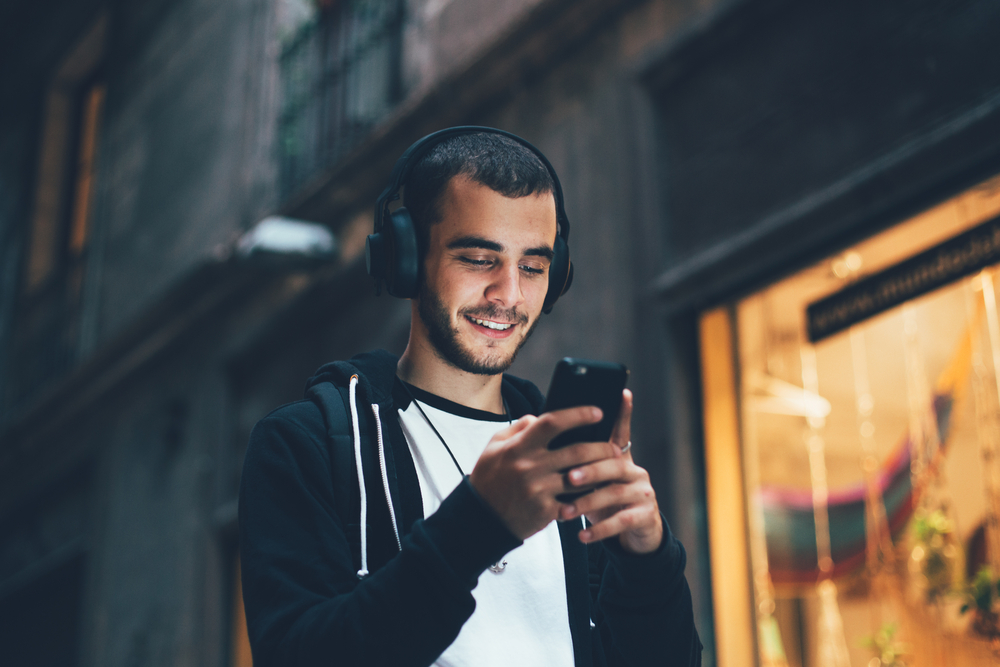
James is a music enthusiast who has excelled in the art of integrating his favorite music into his daily life, effortlessly transitioning from Spotify at his work-desk to Pandora on his runs, and carefully crafting playlists to beautifully enhance every activity, whether he’s working out, whipping up a meal, or immersed in a gaming session. He’s seldom observed without his headphones, which have become an important part of his daily life, turning every moment into an individualized audio experience. However, while James gets solace and joy in the immersive world of music, the very thing he treasures could be quietly damaging his precious sense of hearing.
Regarding our ears, there are both safe and dangerous ways to indulge in music. Sadly, many of us tend to gravitate towards the latter.
How does lengthy periods of music exposure lead to hearing loss?
As time pass, loud noises can bring about deterioration of your hearing abilities. We’re used to thinking of hearing loss as an issue associated with aging, but more and more research indicates that it’s really the accumulation of noise-related damage that is the issue here and not anything inherent in the process of aging.
It also turns out that younger ears are particularly vulnerable to noise-related damage (they’re still forming, after all). However, teenagers tend to dismiss the possible dangers of excessive noise over time. An increasing amount of young people are experiencing hearing loss as a result of frequent use of loud headphones.
Is it possible to enjoy music safely?
Unregulated full volume is clearly the” hazardous” way to listen to music. There is a way to listen to music more safely, which typically means lowering the volume. The recommended safe volume levels are typically as follows:
- For Adults: No more than 40 hours of listening on a device, and keep the volume below 80 dB.
- If you’re under 18, 40 hours is still acceptable, just be certain to keep the volume at a safe level, 75 decibels or less.
Breaking it down, you’re dealing with approximately 5 hours and 40 minutes of listening each day. That seems like a lot, but it can go by rather quickly. Despite this, most individuals possess a well-developed understanding of time management, a skill that is usually perfected during early childhood.
The more challenging aspect involves keeping track of your volume level. Technologies like smartphones, computers, and TVs typically do not show volume in decibels. Its value is calculated using a rather subjective or relative scale. The range could be as wide as 1 to 100, or it might be as narrow as 1 to 16. You might not have any clue what the max volume on your device is, or how close to the max you are.
Tips for effectively keeping track of your music volume
To deal with this issue, a number of free noise tracking apps are available for both iPhone and Android devices. These apps supply real-time insights into ambient noise levels, empowering users to adjust their music volume appropriately.
For this reason, many audiologists suggest utilizing one of the numerous noise level tracking applications available at no cost. These apps– extensively available for both iPhone and Android devices– will give you real-time readouts on the noises surrounding you. That way, you can keep track of the dB level of your music in real time and make adjustments.
A volume comparison: garbage disposals and more
By way of example, 80 dB is approximately comparable to the noise produced by a typical garbage disposal or dishwasher– audible, yet not excessively loud. Acknowledging this standard is essential, as it represents the threshold beyond which auditory damage becomes a substantial danger.
So, being extra vigilant when surpassing this decibel limit is important. Think about limiting exposure to overly loud music by indulging in select tracks at maximum volume rather than indulging in entire albums.
Recurring exposure to increased volume levels can result in hearing problems such as tinnitus and eventual hearing loss. By being mindful of when our ears are at risk, we allow ourselves to make educated choices in order to promote safer listening habits.
Schedule a hearing exam
For better prioritization of your hearing health, it is advisable to contact a hearing professional to book a comprehensive hearing examination. Proactive measures such as regular assessments can detect any possible problems early on, enabling timely interventions and individualized recommendations to safeguard your precious sense of hearing.
